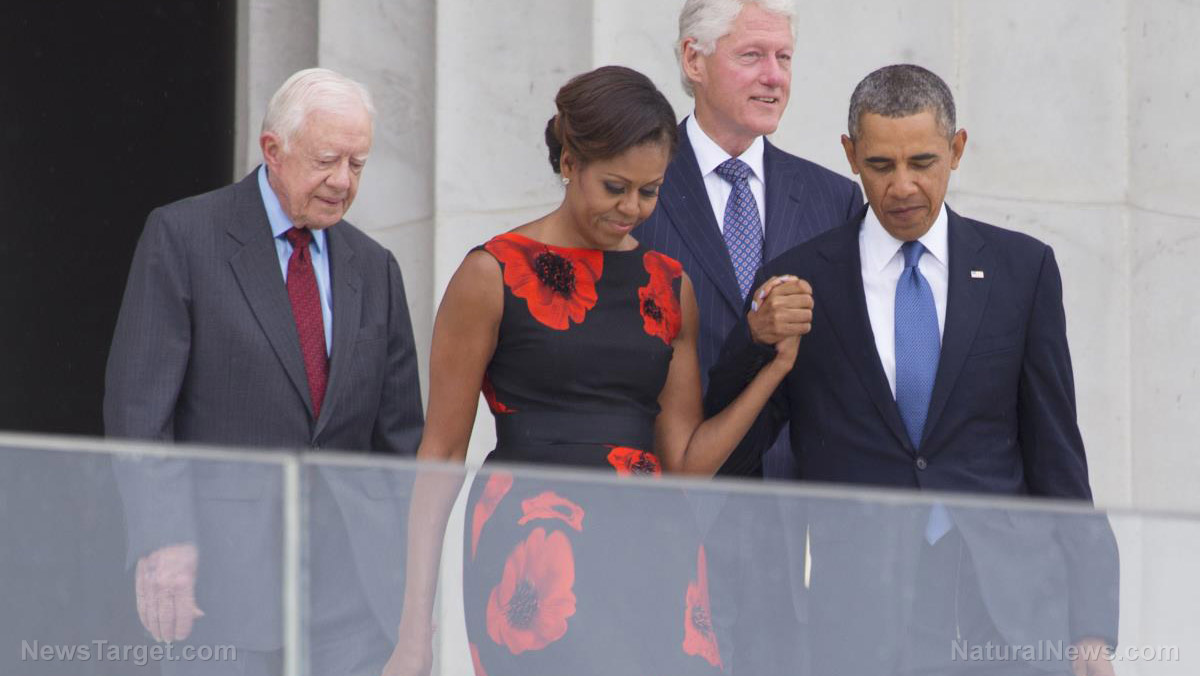Israel’s recent attacks on Hezbollah communications devices signal possible ground invasion of Lebanon
09/26/2024 / By Richard Brown

Israel’s recent attacks targeting Hezbollah’s communication devices could signal the beginning of a pre-planned invasion of Lebanon, according to Middle East expert Robert Riggs.
Over two days, thousands of Hezbollah pagers and walkie-talkies were disrupted, an action widely attributed to Israel. The explosions killed at least 42 people and injured over 3,500 others. The escalation in the conflict between Israel and Hezbollah has heightened fears that nearly one year of near-daily cross-border exchanges of fire between the two may evolve into a full-scale war.
Although Israel has neither confirmed nor denied its involvement, Riggs noted that disrupting Hezbollah’s communications is a crucial aspect of military strategy.
“These attacks will have a large impact on Hezbollah’s ability to coordinate a response to Israel’s escalation by disrupting their communications network,” he told the Daily Express US.
The disruption is seen as a key move to restore Israel’s reputation as a credible deterrent against Hezbollah and to enhance the Mossad intelligence agency’s standing, especially after it faced criticism for its intelligence failures related to the October 7 Hamas-led attacks on Israel. (Related: How thousands of pagers became deadly weapons in Lebanon.)
Riggs explained, “The Israeli Mossad has a lot to gain by carrying out such an audacious operation in tandem with the IDF, primarily as a restoration of their reputation for top-level intelligence gathering.”
The timing of these attacks corresponds to a shift in Israel’s stance toward Lebanon, with Israeli leaders recently announcing a new objective: the safe return of residents displaced from their homes in northern Israel amid ongoing cross-border exchanges with Hezbollah.
In response, Hezbollah and Israel engaged in fresh attacks across the border. During this time, Hezbollah leader Hassan Nasrallah described the incidents as a “severe blow” to the militant group and has vowed to retaliate.
Riggs highlighted that by targeting Hezbollah’s leadership and communication structures, Israel is sending a strong message to Hezbollah’s leaders to reconsider their aggressive posturing.
“The main goal of these attacks is to change the security situation along the Lebanon-Israel border by pushing Hezbollah back to the Litani River, significantly reducing their capacity to threaten Israeli border communities.”
Historically, Israel’s intelligence agencies have employed cyber technologies to execute strategic attacks. For instance, in 1996, Shin Bet assassinated Hamas bombmaker Yahya Ayyash by rigging his cellphone with explosives.
Similarly, in 1972, Mossad agents killed Palestinian Liberation Organization representative Mahmoud Hamshari by remotely detonating explosives packed inside his phone.
Riggs anticipates that the international community should expect a continuation of this strategy that combines advanced technology with precise intelligence gathering across Lebanon, Syria, Iraq, Iran and, to a lesser extent, Yemen.
This approach underscores Israel’s commitment to maintaining its strategic advantage in the region amid escalating tensions.
Fighting along Israel-Lebanon border intensifies
On Monday, Sept. 23, fighting intensified at the Israeli-Lebanese border, with Israeli strikes resulting in nearly 500 deaths, primarily in southern Lebanon, according to Lebanese health authorities. Analysts describe this as the largest Israeli aerial campaign against Hezbollah since the 2006 war.
The death toll has reached 492, including 35 children, with 1,645 injuries reported.
Since the onset of the Gaza conflict last October, Israel and Hezbollah have engaged in reciprocal attacks. Israel aims to degrade Hezbollah’s capabilities and protect its northern regions, while Hezbollah claims to act in solidarity with Palestinians.
The Israeli military reported striking 1,300 Hezbollah targets, destroying various weapons systems.
Recent strikes affected populated areas, and Hezbollah has launched hundreds of rockets at Israel in retaliation.
Following a recent airstrike that killed at least 50 Hezbollah fighters in Beirut, many residents in southern Lebanon are fleeing to safer areas.
Israeli officials have advised civilians in southern and eastern Lebanon to evacuate as military operations escalate.
Watch this clip from the BBC reporting on how Hezbollah leader Hassan Nasrallah declared the mass attack on communications devices “a declaration of war.”
This video is from the TrendingNews channel on Brighteon.com.
More related stories:
Lebanon warns of “doomsday” response for West, Asia and Europe if Israel expands war.
Thousands of handheld radios EXPLODE in second wave of Israeli attacks on Lebanon.
Israel launches PAGER ATTACK on Lebanon – exploding mobile devices kill nine, wound more than 2,700.
Sources include:
Submit a correction >>
Tagged Under:
big government, border security, chaos, Communications, conspiracy, Dangerous, Hezbollah, Holy War, insanity, invasion, Israel, Israel-Hezbollah conflict, Lebanon, Middle East, military, national security, Robert Riggs, WWIII
This article may contain statements that reflect the opinion of the author
RECENT NEWS & ARTICLES
COPYRIGHT © 2017 CONSPIRACY NEWS



















